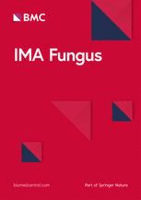
IMA Fungus
metrics 2024
Unveiling the Hidden World of Fungi.
Introduction
IMA Fungus is an esteemed open-access journal published by BMC, dedicated to advancing research in the fields of fungi, plant sciences, and ecological systems. With an ISSN of 2210-6340 and E-ISSN 2210-6359, this journal has been an influential platform since its inception in 2010, contributing significantly to the scientific community in the United States and beyond. The journal’s remarkable impact can be seen in its Q1 quartile rankings across multiple categories, including Agricultural and Biological Sciences, Ecology, Evolution, Behavior and Systematics, and Plant Science, positioning it among the top literary sources in these fields. Notably, IMA Fungus holds impressive Scopus rankings, with the Agricultural and Biological Sciences category placing it in the 98th percentile, evidencing its crucial role in disseminating impactful research. Given its commitment to fostering accessibility and collaboration, IMA Fungus continues to be an invaluable resource for researchers, professionals, and students aiming to explore and understand the complex roles of fungi within various ecosystems.
Metrics 2024
 1.38
1.38 5.20
5.20 5.20
5.20 49
49Metrics History
Rank 2024
Scopus
IF (Web Of Science)
JCI (Web Of Science)
Quartile History
Similar Journals
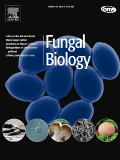
Fungal Biology
Cultivating Knowledge in the World of Fungal BiologyFungal Biology, published by Elsevier Science Ltd, is a premier journal dedicated to advancing the field of mycology and its interdisciplinary applications. With an ISSN of 1878-6146 and E-ISSN 1878-6162, this journal serves as a vital platform for researchers and professionals interested in the ecological, evolutionary, and genetic aspects of fungi, as well as their implications in infectious diseases and plant sciences. As of 2023, it proudly holds a Q2 ranking in Ecology, Evolution, Behavior and Systematics and Plant Science, and a Q3 ranking in Genetics and Infectious Diseases, highlighting its significant contribution to these domains. The journal boasts an impressive Scopus rank, including a percentile of 83rd in Ecological studies, ensuring that published research reaches a wide audience and impacts ongoing discourse in the field. With open access options, Fungal Biology encourages the dissemination of high-quality research, aimed to foster collaboration and innovation among scholars and practitioners. With its convergence of knowledge from 2010 to 2024, this journal is instrumental for those advancing the understanding of fungal biology and its myriad applications in environmental and health sciences.

MYCOSCIENCE
Cultivating Understanding of Fungi's Ecological ImpactMYCOSCIENCE, published by the Mycological Society of Japan, is a prominent peer-reviewed journal that serves as an essential resource in the fields of ecology, evolution, behavior, and systematics, highlighted by its Q2 ranking in the 2023 category quartiles. Established in 1994 and continuing through 2024, the journal focuses on mycological research, providing insights into the interconnected worlds of fungi and their ecological roles. With an ISSN of 1340-3540 and an E-ISSN of 1618-2545, MYCOSCIENCE aims to disseminate high-quality research that addresses current issues and trends within the discipline. Despite not being an open-access journal, it makes a significant contribution to advancing fungal biology and its applications in agriculture and environmental science, making it an invaluable asset for researchers, professionals, and students alike. Located in the vibrant academic environment of Tokyo, Japan, MYCOSCIENCE stands out for its dedication to fostering a deeper understanding of mycology and its implications for biodiversity and ecosystem health.
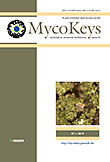
MycoKeys
Innovating mycology: bridging science and sustainability.MycoKeys, published by PENSOFT PUBLISHERS, is a leading open-access journal dedicated to advancing the understanding of fungal biology and its diverse implications within agricultural, ecological, and biological sciences. With its ISSN 1314-4057 and E-ISSN 1314-4049, this journal has achieved remarkable academic prestige, reflected in its 2023 Scopus rankings placing it in the first quartile (Q1) across several categories, including Agricultural and Biological Sciences (miscellaneous), Ecology, Evolution, Behavior and Systematics, and Plant Science. MycoKeys provides a platform for researchers, professionals, and students interested in the latest findings and methodologies regarding fungi, their environments, and their interactions within various ecosystems. Since its transition to open access in 2011, the journal has championed the dissemination of high-quality research to a global audience, fostering collaboration and innovation in mycology. With a publishing history that converges from 2015 to 2024, MycoKeys remains a vital resource for those committed to exploring the multifaceted roles fungi play in our world.
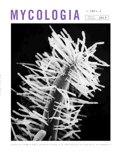
MYCOLOGIA
Advancing fungal research for a sustainable future.MYCOLOGIA, published by Taylor & Francis Inc, is a prestigious journal that has been at the forefront of fungal research since its inception, with converging years of publication from 1945 to 2024. This interdisciplinary journal, identified by ISSN 0027-5514 and E-ISSN 1557-2536, stands out in various scientific categories, achieving Q1 rankings in Ecology, Evolution, Behavior and Systematics, as well as Plant Science, alongside strong performances in Cell Biology and Molecular Biology categories. With an impact factor that reflects its significance in the field, MYCOLOGIA appeals to a diverse audience, including researchers, professionals, and students dedicated to advancing the understanding of fungal biology and its ecological implications. Notably, while it does not currently operate under an Open Access model, the journal remains a vital resource for those pursuing groundbreaking discoveries in mycology and related disciplines.

BIOLOGIA
Championing excellence in biological research and communication.BIOLOGIA, a distinguished journal published by Springer, serves as a pivotal resource in the fields of biological sciences, including Animal Science, Zoology, Plant Science, Ecology, Evolution, Behavior, Cell Biology, Biochemistry, and Genetics. Established in 1954 and continuously disseminating knowledge through its converged years until 2024, it supports the academic community by fostering effective communication amongst researchers and professionals. Notably, the journal boasts a commendable presence in academic rankings, holding a Q2 ranking in Animal Science and Zoology, along with Q3 designations in multiple disciplines, reflecting its substantial impact in enhancing scientific inquiry. While currently not offering open access, the journal remains a critical tool for those seeking to stay at the forefront of biological research, supported by its robust publication framework. For students, researchers, and professionals alike, BIOLOGIA is an essential reference for innovative studies and findings that drive the field forward.
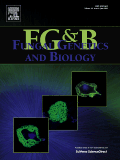
FUNGAL GENETICS AND BIOLOGY
Connecting Genetics and Biology for Fungal BreakthroughsFungal Genetics and Biology is a leading peer-reviewed journal published by Academic Press Inc, Elsevier Science, dedicated to advancing the understanding of fungi through innovative genetic and biological research. Since its inception in 1996, this journal has served as a vital platform for the dissemination of critical findings in the fields of Genetics and Microbiology, maintaining a distinguished Q2 category ranking in both disciplines as of 2023. With an ISSN of 1087-1845 and an E-ISSN of 1096-0937, the journal emphasizes the intersection of genetics and molecular biology to explore fundamental questions related to fungal biology that are of paramount importance to various applications in biotechnology, medicine, and environmental science. Researchers, professionals, and students alike will find this journal invaluable as it not only covers current trends and breakthroughs but also encourages collaborative efforts across the scientific community. Fungal Genetics and Biology continues to shape the future of fungal research well into 2024 and beyond, offering rich insights and open access options for a global audience.
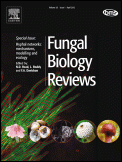
Fungal Biology Reviews
Exploring the Depths of Fungal ScienceFungal Biology Reviews is a premier academic journal published by Elsevier Science Ltd, focusing on the rapidly evolving field of fungal biology. With an ISSN of 1749-4613 and an E-ISSN of 1878-0253, this journal has established itself as a leading resource for researchers, academics, and professionals dedicated to advancing our understanding of fungi and their ecological, agricultural, and medical implications. As a testament to its impact and quality, Fungal Biology Reviews holds a distinguished Q1 classification in both Microbiology and Plant Science categories for 2023, with a notable rank of 26 out of 182 in the Microbiology category. The journal uniquely blends comprehensive reviews that synthesize current research findings with forward-looking perspectives that pave the way for future studies, making it indispensable for anyone involved in fungal research. Although it operates under a traditional access model, its commitment to fostering impactful scholarship ensures that it remains relevant and widely cited within the academic community. Spanning from its inception in 2007 through to its projected conclusion in 2024, Fungal Biology Reviews continues to shape the framework for future discoveries in fungal biology.

NEW ZEALAND JOURNAL OF BOTANY
Cultivating Insights into New Zealand's Unique FloraThe New Zealand Journal of Botany, published by the esteemed Taylor & Francis Ltd, serves as a pivotal platform for disseminating significant research in the fields of Ecology, Evolution, Behavior and Systematics, as well as Plant Science. With a rich history dating back to 1963 and an impressive convergence extending to 2024, this journal has established itself as an essential resource for researchers and professionals dedicated to understanding the complexities of plant life and ecological systems in New Zealand and beyond. The journal is currently categorized in the Q3 quartile for both relevant disciplines as of 2023, reflecting its balanced influence within the global academic community. Although not an open access journal, it retains a significant impact factor, evidenced by its Scopus rankings, which place it within the top half of its categories. This makes it an invaluable tool for students, researchers, and academics aiming to engage with robust, peer-reviewed scientific findings and contribute to the evolving discourse surrounding botany and ecological research.
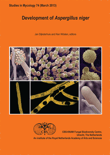
STUDIES IN MYCOLOGY
Championing Collaborative Efforts in Fungal ScienceSTUDIES IN MYCOLOGY is a premier journal dedicated to advancing research in the field of mycology, published by the renowned WESTERDIJK FUNGAL BIODIVERSITY INSTITUTE. With an impact factor that places it in the top quartile (Q1) of both Agricultural and Biological Sciences and Plant Science categories, it holds a prestigious position in the scientific community, ranking #1 out of 193 in its field as per Scopus metrics. Since its transition to Open Access in 2008, it has made significant strides in disseminating high-quality research widely, fostering a greater understanding of fungal biodiversity and its ecological impact. Covering a broad spectrum of topics related to mycology, the journal aims to provide researchers, professionals, and students with a platform for sharing innovative findings, stimulating academic discourse, and promoting collaborative efforts within this vital area of study. Hailing from the Netherlands, STUDIES IN MYCOLOGY serves as an invaluable resource for exploring the complexities of fungi, their interactions with various ecosystems, and their practical applications in agriculture and beyond.
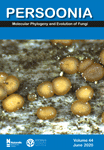
PERSOONIA
Championing Excellence in Plant Science ResearchPERSOONIA, a distinguished journal published by RIJKSHERBARIUM, serves as a pivotal platform for the dissemination of high-quality research in the fields of Ecology, Evolution, Behavior, and Systematics, as well as Plant Science. Established with a commitment to advancing scientific knowledge, PERSOONIA has achieved an impressive Q1 ranking in these areas, highlighting its significant impact within the academic community, as evidenced by its ranking of #12 out of 721 journals in its field, placing it in the top 2% of publications. With a publication history that spans from 1996 to present, the journal regularly features innovative studies that push the boundaries of understanding in ecological and botanical sciences. While Open Access options are currently limited, researchers and professionals alike benefit from subscription access to this vital resource. Located in the Netherlands, PERSOONIA continues to be a beacon for scholars aiming to enrich the discourse in evolving ecological and plant science disciplines.